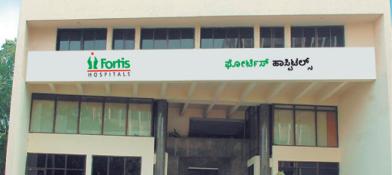Blood urea nitrogen (BUN) test
The blood urea nitrogen (BUN) test measures a waste product generated by liver through protein metabolism called urea nitrogen. Measuring urea nitrogen level in the blood stream can diagnose and identify various health conditions especially related to kidney and liver.
Overview of Blood urea nitrogen test:
The test is recommended to identify various issues in healthcare:
To assess kidney function: The kidneys filter urea nitrogen and other waste products from the blood stream. In case of any damage or infections the process of filtration gets impaired leading to elevated BUN levels. This abnormal level from test results can help diagnose acute, chronic kidney disease and urinary tract obstruction.
Health care provides recommend serial BUN measurements to track disease progression for individuals with known kidney disease. These measurements can provide insights into the treatment effectiveness and the overall health of the kidneys.
In addition, dehydration is also one of the causes of elevated BUN level. The BUN test can help determine the presence of dehydration and guide appropriate fluid management.
The test is also effective to determine the effectiveness of dialysis treatment (peritoneal or hemodialysis).
Although BUN tests are primarily used to evaluate kidney function it is also used to determine liver function, as presence of liver disease may impair the production of urea nitrogen, leading to lower BUN levels.
Procedure
BUN test is the simple blood test performed in a clinical laboratory which involves the following steps:
Collection of Blood Sample: A healthcare professional will clean the area, usually the arm, with an antiseptic and then a needle is inserted into a vein to collect a blood sample. The sample is sent to the analysis to detect the levels.
Laboratory Analysis: After reception of blood sample, the specimen is processed to measure urea nitrogen concentration. The report is released according to BUN level and expressed in milligrams millimoles per liter (mmol/L) or per deciliter (mg/dL).
Interpreting the BUN level requires considering various factors:
Reference Range: The reference range for BUN levels can differ slightly depending on the laboratory and the individual's age, sex, and overall health. Generally, the reference range for adults is in the range of 7 and 20 mg/dL (2.5 and 7.1 mmol/L).
The Factors Affecting BUN test results:
The results of BUN level are affected by several factors. Below are common among them.
- Loss of kidney function
- Acute kidney injury
- Gastrointestinal bleeding
- Congestive heart failure
- Liver disease
- Dehydration
- Intake of high-protein diet of protein-rich meal shortly before the BUN test can temporarily elevate BUN levels. It is important to inform healthcare professionals about recent dietary habits to ensure an accurate interpretation of the results.
- Medications such as corticosteroids, diuretics, and some antibiotics, can impact blood urea levels.
Relation between blood urea nitrogen and creatinine
Blood urea nitrogen tests are often co-related with creatinine tests for accurate and precise evaluation. The BUN-to-creatinine ratio provides deeper insights into the kidney function and helps differentiate the underlying cause of elevated levels. Measuring Urea nitrogen with creatinine is mainly used to ascertain differential diagnosis for the following categories:
- Pre-renal hyperuremia: Increased uric acid levels in the blood which happened before kidney failure primarily caused by cardiac decompensation, water depletion, increased protein catabolism.
- Renal hyperuremia: This is caused by factors that affect within the kidney such as glomerulonephritis, chronic nephritis, polycystic kidney, nephrosclerosis, tubular necrosis.
- Post renal hyperuremia: This condition is caused by factors affecting urinary flow especially formation of kidney stone, tumors, and urinary tract obstructions.
Interpretating cause of elevated BUN-to-creatinine ratio:
Creatinine is produced from the breakdown of creatinine phosphate from muscle through protein metabolism and is further filtered by kidney from blood and excreted in urine. While BUN is filtered in nephrons and reabsorbed back into the blood stream. Hence the serum creatinine level will be low compared to serum BUN levels in healthy individuals.
In clinical settings the ratio of BUN-to-creatinine level is used to categorize acute renal failure into prerenal, intrinsic renal, and postrenal failure. Ideally the BUN to creatinine ratio should be in the range of 10:1 and 20:1. Elevated or low level may indicate impaired kidney function or dehydration.
Renal Causes: If the BUN-to-creatinine ratio is low (less than 15:1), it suggests a renal cause for elevated BUN levels. This indicates impaired kidney function, as seen in acute or chronic kidney disease.
Pre-renal Causes: A high BUN-to-creatinine ratio (greater than 20:1) may indicate a pre-renal cause of elevated BUN levels. This means that the issue lies before the kidneys, often related to decreased blood flow to the kidneys, such as dehydration or congestive heart failure.
Limitations of the test
BUN tests are affected by external factors such as high protein food, underlying medical conditions and ongoing medical treatment. Hence it is important to openly discuss medications or any abnormalities with health professionals before taking the BUN test.
What to except during Blood Urea Nitrogen Test?
Medical specialists give you advice regarding your current health and any underlying medical conditions prior to the test. Before making an appointment for the test, the doctor may occasionally request a change to the current course of therapy or to give instructions. When your doctor gives you the all-clear to proceed with the test, schedule an appointment with the recommended laboratory and begin your day as directed.
The phlebotomist will wrap an elastic band around the upper portion of your arm to improve blood flow before using a needle to take a blood sample from your arm vein. The area of your arm where the blood will be extracted usually the inside of your elbow will be cleaned with an antiseptic solution.
After your blood is drawn, you can stop the bleeding by applying pressure to the puncture site with a bandage or cotton swab.
Generally, following the test, you can resume your regular activities, such as driving and working. If you were told to fast before the exam, you might want to pack a snack for after.
After test side effects are uncommon. If there is any notified bleeding apply pressure and wrap them using a small cotto bandage.
Conclusion:
Blood Urea Nitrogen is a valuable parameter in evaluating, monitoring kidney function and dehydration. In clinical settings, healthcare professionals use BUN levels in conjunction with a comprehensive clinical evaluation to obtain an accurate diagnosis and appropriate treatment. Although the result of the test is affected with various factors consulting health professionals remains vital for detailed understanding and personalized treatment management.
Popular Searches :
Hospitals: Cancer Hospital in Delhi | Best Heart Hospital in Delhi | Hospital in Amritsar | Hospital in Ludhiana | Hospitals in Mohali | Hospital in Faridabad | Hospitals in Gurgaon | Best Hospital in Jaipur | Hospitals in Greater Noida | Hospitals in Noida | Best Kidney Hospital in Kolkata | Best Hospital in Kolkata | Hospitals in Rajajinagar Bangalore | Hospitals in Richmond Road Bangalore | Hospitals in Nagarbhavi Bangalore | Hospital in Kalyan West | Hospitals in Mulund | Best Hospital in India | | Cardiology Hospital in India | Best Cancer Hospital in India | Best Cardiology Hospital in India | Best Oncology Hospital In India | Best Cancer Hospital in Delhi | Best Liver Transplant Hospital in India
Doctors: Dr. Rana Patir | Dr. Rajesh Benny | Dr. Rahul Bhargava | Dr. Jayant Arora | Dr. Anoop Misra | Dr. Manu Tiwari | Dr. Praveer Agarwal | Dr. Arup Ratan Dutta | Dr. Meenakshi Ahuja | Dr. Anoop Jhurani | Dr. Shivaji Basu | Dr. Subhash Jangid | Dr. Atul Mathur | Dr. Gurinder Bedi | Dr. Monika Wadhawan | Dr. Debasis Datta | Dr. Shrinivas Narayan | Dr. Praveen Gupta | Dr. Nitin Jha | Dr. Raghu Nagaraj | Dr. Ashok Seth | Dr. Sandeep Vaishya | Dr. Atul Mishra | Dr. Z S Meharwal | Dr. Ajay Bhalla | Dr. Atul Kumar Mittal | Dr. Arvind Kumar Khurana | Dr. Narayan Hulse | Dr. Samir Parikh | Dr. Amit Javed | Dr. Narayan Banerjee | Dr. Bimlesh Dhar Pandey | Dr. Arghya Chattopadhyay | Dr. G.R. Vijay Kumar | Dr Ashok Gupta | Dr. Gourdas Choudhuri | Dr. Sushrut Singh | Dr. N.C. Krishnamani | Dr. Atampreet Singh | Dr. Vivek Jawali | Dr. Sanjeev Gulati | Dr. Amite Pankaj Aggarwal | Dr. Ajay Kaul | Dr. Sunita Varma | Dr. Manoj Kumar Goel | Dr. R Muralidharan | Dr. Sushmita Roychowdhury | Dr. T.S. MAHANT | Dr. UDIPTA RAY | Dr. Aparna Jaswal | Dr. Ravul Jindal | Dr. Savyasachi Saxena | Dr. Ajay Kumar Kriplani | Dr. Nitesh Rohatgi | Dr. Anupam Jindal
Specialties: Heart Lung Transplant | Orthopedic | Cardiology Interventional | Obstetrics & Gynaecology | Onco Radiation | Neurosurgery | Interventional Cardiology | Gastroenterologist in Jaipur | Neuro Physician | Gynecologist in Kolkata | Best Neurologist in India | Liver Transfer | Best Cardiologist in Delhi































